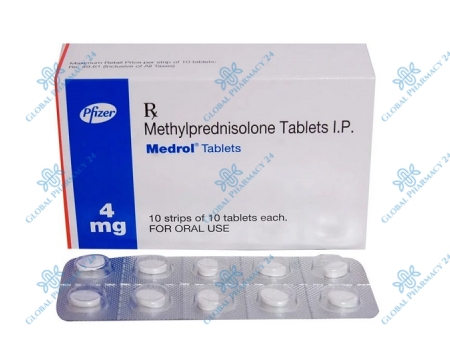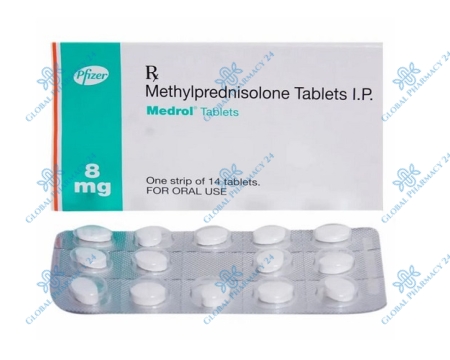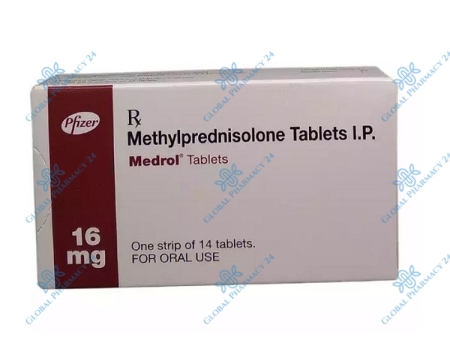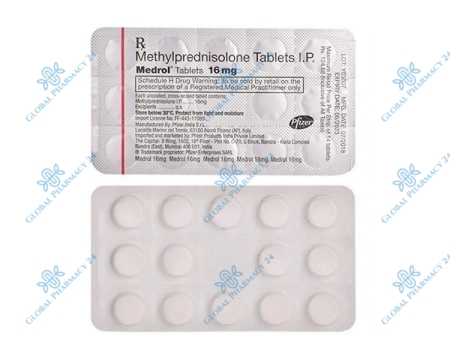| Characteristic | Detail |
|---|---|
| Active Ingredient | Methylprednisolone |
| Dosage Forms | Tablet, Injectable |
| Used For | Inflammatory Conditions, Allergic Reactions, Immune System Disorders |
| Duration of Effect | Varies by dosage form; typically 12-36 hours for immediate-release tablets |
| Side Effects | Insomnia, Weight gain, Increased blood pressure, Mood swings |
A Brief History of Medrol
Medrol, known generically as methylprednisolone, is a synthetic corticosteroid used for its anti-inflammatory and immunosuppressive properties. It was developed in the 1950s as part of the quest to create more effective corticosteroid therapies. Medrol's development marked a significant advancement in the treatment of a range of conditions, including autoimmune diseases, allergic reactions, and other inflammatory conditions. Its ability to mimic the anti-inflammatory effects of natural cortisol but with enhanced potency made it a cornerstone medication in modern medicine.
Following its development, Medrol received FDA approval, establishing its role in the pharmaceutical arsenal against inflammation and immune system disorders. The approval was a testament to its efficacy and the result of rigorous testing that underscored its benefit in managing conditions such as arthritis, lupus, severe asthma, and more. Over the years, Medrol has been utilized in various forms, including tablets and injections, offering flexibility in treatment approaches.
Development and FDA Approval
The journey of Medrol from its initial synthesis to FDA approval was marked by extensive research and clinical trials aimed at understanding its pharmacodynamics and therapeutic potential. Its approval underscored the drug's safety profile, efficacy, and the significant benefits it brings to patients with inflammatory and autoimmune conditions. Over the decades, Medrol has remained a vital tool for physicians, reflecting ongoing trust in its ability to manage complex conditions effectively.
The Role of Medrol in Medicine
Medrol's role in medicine cannot be overstated. It serves as a critical component in the management of acute and chronic inflammatory conditions, as well as autoimmune disorders. Its versatility and efficacy have made it indispensable in fields ranging from rheumatology to dermatology and beyond.
Understanding the Effects of Medrol
Medrol exerts its effects by mimicking the action of cortisol, a natural steroid hormone produced by the adrenal glands. It works by dampening the immune system's response to various triggers, thereby reducing inflammation and the symptoms associated with it. This mechanism of action is central to its effectiveness in treating a wide array of conditions, from acute allergic reactions to chronic autoimmune diseases. The ability to precisely control inflammation with Medrol has improved the quality of life for countless patients, allowing them to manage symptoms and maintain functionality.
However, the benefits of Medrol come with potential side effects, reflecting the drug's powerful impact on the body's natural hormonal balance. Short-term use is often well-tolerated, but long-term therapy requires careful management to minimize risks such as osteoporosis, adrenal suppression, and increased susceptibility to infections. Understanding these effects is crucial for both patients and healthcare providers to navigate the use of Medrol safely and effectively.
Short-term and Long-term Effects
Short-term use of Medrol is typically associated with rapid relief from inflammation and pain, making it an effective treatment for acute flare-ups of chronic conditions. However, long-term therapy can lead to more significant side effects, necessitating a balanced approach to its use. Monitoring and managing these effects are essential for ensuring patient safety over extended treatment periods.
Impact on Daily Life
The impact of Medrol on daily life can be profound, offering relief from debilitating symptoms and enhancing quality of life. However, patients must be aware of potential side effects and work closely with their healthcare provider to manage their treatment effectively.
Comparing Medrol with Other Treatments
When compared to other corticosteroids and treatment options, Medrol offers a unique balance of potency and safety. Its specific properties may make it more suitable for certain conditions, highlighting the importance of personalized treatment plans in managing inflammatory and autoimmune diseases.
FAQs Medrol
What is Medrol?
Medrol is a brand name for the medication methylprednisolone, which belongs to a class of drugs known as corticosteroids. It is used to treat a variety of conditions, including inflammation, allergic reactions, and autoimmune disorders.
How does Medrol work?
Medrol works by reducing inflammation and suppressing the immune system's response to certain conditions. It acts by inhibiting the release of substances in the body that cause inflammation.























